-
Content count
2,756 -
Joined
-
Last visited
-
Days Won
8
Posts posted by Mark Foote
-
-
14 hours ago, Bindi said:To allow the unconscious to become conscious, we need to allow the language of the unconscious to be given a voice. That language is primarily emotions, if I’m looking anywhere else, I’m not looking in the right place. The language of the unconscious isn’t rational, and it can’t be accessed rationally, or suppressed rationally. Say you have an unconscious proclivity developed at an early age, and your only awareness of it is the emotion and action it promotes in you. Just stopping the action requires endless willpower, but looking squarely at the underlying emotion and consequent action allows the entire issue to dissolve. To be honest, I think think Suzuki is too worried about suffering, I would rather embrace the suffering and in the fullness of time see it dissipate, rather than skirting around it and trying to find the thin line between attending to it and not being caught by it. Far too much work IMO.
The language of the unconscious for me comes through my experience of awareness by necessity, of awareness taking place out of necessity. The necessity can be the necessity for breath, it can be the necessity for support for the structure of the spine, or it can be a necessity arising from somewhere outside the boundaries of my senses.Underlying emotion and consequent action is the work of a lifetime, to square with the free placement of attention out of necessity experienced in the movement of breath, yet the understanding is out of the free placement of attention and not the other way around.
I see that it's possible to realize activity solely by virtue of the free placement of attention, with regard to inhalation and exhalation. If I can practice that, and then touch on that during the day, maybe I can come to an understanding through grace of underlying emotion and action.
My only shot, I think. -
12 hours ago, Bindi said:
Perhaps the shadow self is more abiding than just the devious side of ego, for example what if the shadow self was the shadow face of kundalini, a potentially powerful and creative aspect that is not accepted by us on a conscious level. I see the shadow self as the equivalent of the unlovable female side within that needs to be embraced to reveal her true vital and powerful nature, associated with emotions and black and female and water. Just following this possibility, the potential coexistence becomes Shakti and shiva. From the article above “What is especially interesting is the idea that the shadow contains not just destructive aspects of the personality, but also potent, creative, and powerful capabilities.”
I liked the quotes from Jung in your original post, but I found the explanations by whoever authored the article uninspired.
Daniel Goleman in "Emotional Intelligence" attributes the impulsive actions that overwhelm our better judgement to memories from before we had speech, stored in the amygdala.
I think it's true that we have to come to terms with action whose source is in the unconscious, and with action whose source is in our innermost belief. If we don't permit ourselves to examine carefully what we truly believe, and especially the actions manifested from those beliefs, then we are two mints in one (so to speak).
The question is how do we relinquish volition to the action of the unconscious, how do we remain conscious as action of the unconscious takes place, as action out of our innermost beliefs plays out like a hypnotist's suggestion in the action of a subject under hypnosis.
I would suggest through the sense of place associated with awareness, from moment to moment.When “doing something” has ceased, and there is “not one particle of the body” that cannot receive the placement of attention, then the placement of attention is free to shift as necessary in the movement of breath.
When a presence of mind is retained as the placement of attention shifts, then the natural tendency toward the free placement of attention can draw out thought initial and sustained, and bring on the stages of concentration.
Shunryu Suzuki said:To enjoy our life– complicated life, difficult life– without ignoring it, and without being caught by it. Without suffer from it. That is actually what will happen to us after you practice zazen (“just sitting”).
(“To Actually Practice Selflessness”, August Sesshin Lecture Wednesday, August 6, 1969, San Francisco; parenthetical explanation added)
I practice now to experience the free placement of attention as the sole source of activity in the body in the movement of breath, and in my “complicated, difficult” daily life, I look for the mindfulness that allows me to touch on that freedom.
("To Enjoy Our Life")-
 1
1
-
-
20 minutes ago, Cobie said:
The asking was perfectly alright by me.
What I do not like is the quoting of a post that already was deleted.
I'd like to do that (delete the posts I quote that you delete), but my fingers won't lift to the keyboard.
I think that's because I don't find your posts overly offensive, although I can see where on some occasions they might be embarassing to you. I hope you'll forgive me.
Let's have a look at you, then.
-
-
6 hours ago, Taomeow said:
Why is it that you look exactly as I imagined you to look--ha ha!

-
 3
3
-
-
-
23 hours ago, steve said:
Many thanks to those who have posted pics. To some it may seem like a small thing but I think it's an act of courage; it's not always so easy to allow oneself to be seen. I think the pictures make us more real to each other. They foster connection and ever so slightly bridge the gap between the virtual and "real" worlds. As for myself, I'm not quite ready. Maybe someday. It's odd that sharing a picture of my physical presence would seem so challenging when I've shared so many other details of my life here over the years. I guess we're all different and I've got to honor where I am in the moment. This thread will remain as an invitation for some future less neurotic version of myself to take the leap.
It's odd that sharing a picture of my physical presence would seem so challenging when I've shared so many other details of my life here
I think is that precisely why?
Steve, buddy--you have misattributed the quote to me. You will have to ask liminal_luke, although I don't know if he's really willing to go there right now.p.s.--I see where he went there, yay Liminal!
-
1 minute ago, liminal_luke said:
Many thanks to those who have posted pics. To some it may seem like a small thing but I think it's an act of courage; it's not always so easy to allow oneself to be seen. I think the pictures make us more real to each other. They foster connection and ever so slightly bridge the gap between the virtual and "real" worlds. As for myself, I'm not quite ready. Maybe someday. It's odd that sharing a picture of my physical presence would seem so challenging when I've shared so many other details of my life here over the years. I guess we're all different and I've got to honor where I am in the moment. This thread will remain as an invitation for some future less neurotic version of myself to take the leap.
I shot it in the bathroom mirror, which I should have cleaned beforehand.
If you shoot in a mirror, you can frame the shot and even possibly add lighting, as I did (with the room light). Just remember to look at the camera!-
 1
1
-
-
9 hours ago, Elysium said:
Seems like this is a condition that can be reversed or mitigated at the very least. Also seems like an impossible task however, after all one lives their lives like this.
Also seems like an impossible task however, after all one lives their lives like this.
I practice now to experience the free placement of attention as the sole source of activity in the body in the movement of breath, and in my “complicated, difficult” daily life, I look for the mindfulness that allows me to touch on that freedom.
-
 2
2
-
-
11 hours ago, snowymountains said:Unless you bring the unconscious to the conscious, the answer is not much.
Other way 'round, for me--it's bring the conscious to the unconscious:
There can also come a moment when the movement of breath necessitates the placement of attention at a certain location in the body, or at a series of locations, with the ability to remain awake as the location of attention shifts retained through the exercise of presence.
-
-
10 hours ago, Elysium said:Why do I have this monkey mind running endlessly on background for example? Why do I move so much even when sitting/lying down? Why do the things that irk me, do irk me? Do I not have a say in it? Why do I switch between apps constantly even while I am typing this?
As [one] abides in body contemplating body, either some bodily object arises. or bodily discomfort or drowsiness of mind scatters [one’s] thoughts abroad to externals. Thereupon… [one’s] attention should be directed to some pleasurable object of thought. As [one] thus directs it to some pleasurable object of thought. delight springs up in [one’s being]. In [one] thus delighted, arises zest. Full of zest [one’s] body is calmed down. With body so calmed [one] experiences ease. The mind of one at ease is concentrated. [One] thus reflects: The aim on which I set my mind I have attained. Come. let me withdraw my mind (from the pleasurable object of thought). So [one] withdraws [one’s] mind therefrom, and neither starts nor carries on thought-process. Thus [one] is fully conscious: I am without thought initial or sustained. I am inwardly mindful. I am at ease.
Again … [one] abides contemplating feelings … mind… [one] abides contemplating mind-states in mind-states… [as before with the body].
Such… is the practice for the direction of mind.
And what… is the practice for the non-direction of mind? [First,] by not directing [one’s] mind to externals, [one] is fully aware: My mind is not directed to externals. Then [one] is fully aware: My mind is not concentrated either on what is before or on what is behind, but it is set free, it is undirected. Then [one] is fully aware: In body contemplatlng body I abide, ardent, composed and mindful. I am at ease.
And [one] does the same with regard to feelings … to mind… and mind-states. Thus [one] is fully aware: In mind-states contemplating mind-states I abide, ardent, composed and mindful. I am at ease.”
(SN V 155-156, Vol V pp 135-136)
If you’re studying seated meditation, meditation is not sitting still.
(“Lancet of Seated Meditation”, Dogen, quote attributed to Great Master Hung-tao of Yueh shan, tr. Carl Bielefeldt “Dogen’s Manuals of Zen Meditation”, 1st Ed.)
Last but not least:
So, when you practice zazen, your mind should be concentrated in your breathing and this kind of activity is the fundamental activity of the universal being. If so, how you should use your mind is quite clear. Without this experience, or this practice, it is impossible to attain the absolute freedom.
(“Thursday Morning Lectures”, November 4th 1965, Los Altos; emphasis added)
There’s a particular transition in zazen that I believe Suzuki was referring to. Here’s a description I made of that transition:
The presence of mind can utilize the location of attention to maintain the balance of the body and coordinate activity in the movement of breath, without a particularly conscious effort to do so. There can also come a moment when the movement of breath necessitates the placement of attention at a certain location in the body, or at a series of locations, with the ability to remain awake as the location of attention shifts retained through the exercise of presence.
The mind is “concentrated in the breathing” when the movement of breath necessitates the placement of attention. If the presence of mind continues the placement of attention by the movement of breath, then the role of the mind is clear–that’s the way I read the transcript.
(What Shunryu Suzuki Actually Said)
-
 1
1
-
-
13 hours ago, NaturaNaturans said:
@Mark Foote the fact that we (some of us) need science to prove the importance of lowering stress levels and good posture is evidence of how lost parts of the modern west has become
I wouldn't count on science alone, with regard to lowering stress levels or finding "good" posture.
As I wrote to friends recently, I don't expect I'll ever be an exemplar of good posture, but I can hope to accord more with my own nature, and maybe acquire a feeling for the posture I need. That's my take on "good posture".-
 3
3
-
-
21 hours ago, NaturaNaturans said:QuoteI've been working under the assumption that Western science will one day help to explain the wisdom teachings of the world.
How so, do you think?
I'll give you some examples. First, an explanation of the first line of the famous poem by Fuxi:
In the 6th century C.E. in China, the Buddhist monk Fuxi wrote:
The empty hand grasps the hoe handle
Walking along, I ride the ox
The ox crosses the wooden bridge
The bridge is flowing, the water is still(“Zen’s Chinese Heritage”, translation by Andy Ferguson, pg 2)
Another translation:
The handless hold the hoe.
A pedestrian walks, riding on a water buffalo.
A man passes over the bridge;
The bridge (but) not the water flows.(Ch’an and Zen Teaching, Series One by Lu K’uan Yü (Charles Luk); Rider & Co., London, 1960, pp. 143-145. Translated from The Imperial Selection of Ch’an Sayings (Yu Hsuan Yu Lu) [Yuxuan yulu (Imperial Selections of Recorded Sayings / Emperor’s Selection of Quotations)])
I would say “the empty hand grasps the hoe handle” is a reference to the role of ligaments at the sacrum in generating activity related to posture. Here’s a summary of a study that confirms that some of the activity of the lower body is “regulated” by the iliosacral ligaments:
This study (research by Indahl, A., et al.) established that the ligamento-muscular reflex existed between the sacroiliac joint and muscles that attach to the bones that make up the sacroiliac joint. (The study’s authors) suggested that the sacroiliac joint was a regulator of pelvic and paraspinal muscles and, thereby, influences posture and lumbar segmental stability.
(Serola Biomechanics website summary of Indahl, A., et al., Sacroiliac joint involvement in activation of the porcine spinal and gluteal musculature. Journal of Spinal Disorders, 1999. 12(4): p. 325-30; https://europepmc.org/article/med/10451049
https://www.serola.net/research-category/the-nutation-lesion-2/ligamento-muscular-reflex/)(Appendix–“For a Friend”, Revisited)
Second example, maybe some light on Yuanwu's explanation of case 17 in the Blue Cliff Record:
Answering the monk who asked, “What is the meaning of the Patriarch’s coming from the West?”, Hsiang Lin said, “Sitting for a long time becomes toilsome.” If you understand this way, you are “turning to the left, turning to the right, following up behind.”
(Yuanwu, ‘Blue Cliff Record’, Shambala publications pg 110)
“Turning to the left, turning to the right”—stretch in the ilio-tibial bands sets off reciprocal innervation of the left and right sartorious muscles, and consequently reciprocal activity in the tensor and gluteous muscles. The result is a subtle “turning to the left, turning to the right” in an upright posture, and a stretch in the fascia behind the sacrum and the lower spine.
“Following up behind”—the combination of pressure from the “fluid ball” of the abdomen and stretch and resile in the fascia behind the sacrum and lower spine allows the vertebrae of the spine to find alignment, and permits the fascia behind the spine to provide support.
(Appendix–Kinesthesiology of Fascial Support)More details on that last paragraph are on my site.
Quote
For me, wisdom and science are two separate fields, like intelligence and rationality and empathy for example.
Gautama taught four initial states of concentration, culminating in the cessation of ("doing something" in) inbreathing and outbreathing, then five further states culminating in the cessation of ("doing something" in) feeling and perceiving. The first three of the further states were excellences of the heart's release through the extension of the minds of compassion, of sympathetic joy, and of equanimity, extension through the four quarters of the world, above, below, without limit. I would say the states of concentration that he taught therefore involved both science and empathy, but things as they are (the cessations of "doing something") have to be experienced to be believed.
That's because the action does not cease, but the actor does. So for example, the cessation of inbreathing and outbreathing occurs when breath in the consciousness-informed body takes place without a breather. Inbreathing and outbreathing per se does not cease, but "doing something" in the consciousness-informed body with respect to inbreathing and outbreathing does cease.
Things as they are, or as Shunryu Suzuki said, "things as it is". Suzuki's emphasis was on "just sitting".-
 1
1
-
-
I usually watch the news, see what friends have posted on Facebook, and then lately watch an episode of Perry Mason.
I sit for 25 minutes before bed, sloppy half-lotus. Lately I seem to be sitting longer than 25, and sometimes two sittings.Mostly up again after 4 or 5 hours of sleep. I do some Tai Chi and maybe another sitting, then back to bed for a few more hours, if I can. Up at 7 or 8 and a cup of coffee, another sitting or two, start my day.
-
 1
1
-
-
-
On 2/10/2024 at 4:45 AM, NaturaNaturans said:Is there an east/west schism
In regards to how we view… stuff? Extremely general I know, but I have at least felt way when I've encountered some spiritual term/concept in the beginning, all though i feel things have gotten a little clearer.
I've been working under the assumption that Western science will one day help to explain the wisdom teachings of the world.
Also, although it's true that there's an aspect of the Eastern teachings that has to be experienced to be believed, I would say a better job can be done in describing such experience, and in describing the place of such experience in everyday life.
.It’s impossible to teach the meaning of sitting. You won’t believe it. Not because I say something wrong, but until you experience it and confirm it by yourself, you cannot believe it.
(Kobun Chino Otogawa, “Embracing Mind”, edited by Cosgrove & Hall, pg 48)
There can… come a moment when the movement of breath necessitates the placement of attention at a certain location in the body, or at a series of locations, with the ability to remain awake as the location of attention shifts retained through the exercise of presence.
The difficulty is that most people will lose consciousness before they cede activity to the location of attention–they lose the presence of mind with the placement of attention, because they can’t believe that action in the body is possible without “doing something”...
(Shunryu Suzuki on Shikantaza and the Theravadin Stages)But usually in counting breathing or following breathing, you feel as if you are doing something, you know– you are following breathing, and you are counting breathing. This is, you know, why counting breathing or following breathing practice is, you know, for us it is some preparation– preparatory practice for shikantaza because for most people it is rather difficult to sit, you know, just to sit.
(“The Background of Shikantaza”, Shunryu Suzuki; San Francisco, February 22, 1970)Shunryu Suzuki said:
To enjoy our life– complicated life, difficult life– without ignoring it, and without being caught by it. Without suffer from it. That is actually what will happen to us after you practice zazen.
(“To Actually Practice Selflessness”, August Sesshin Lecture Wednesday, August 6, 1969, San Francisco)
I practice now to experience the free placement of attention as the sole source of activity in the body in the movement of breath, and in my “complicated, difficult” daily life, I look for the mindfulness that allows me to touch on that freedom.
("To Enjoy Our Life") -
On 2/17/2024 at 11:22 AM, Cobie said:
I got pipped to the post. So here’s what I had
who's to say what's real!
Only one not in touch withwhat’s real, would ask this.
What's real, would ask this--
haiku on the haiku thread
oh one, so in touch!-
 1
1
-
-
18 hours ago, manitou said:Today I happened to be reading A.J. Girling's translation of the DDJ. This is the very thing it talks about in Chapter 48:
DIMINISHING AUGMENTS
Attending to knowledge
one seeks to increase
Attending to Tao
natural diminishing.
Diminishing
Diminishing
Wu wei's richness augments.
In action with no actor (wu wei)
nothing remains undone
To fully appreciate life,
adhere to selfless action
With attachment to personal goals
it is not possible
to get the best out of life.
Shunryu Suzuki said:
To enjoy our life– complicated life, difficult life– without ignoring it, and without being caught by it. Without suffer from it. That is actually what will happen to us after you practice zazen ("just sitting").
(“To Actually Practice Selflessness”, August Sesshin Lecture Wednesday, August 6, 1969, San Francisco; parenthetical on zazen added)
I practice now to experience the free placement of attention as the sole source of activity in the body in the movement of breath, and in my “complicated, difficult” daily life, I look for the mindfulness that allows me to touch on that freedom.
("To Enjoy Our Life")That's wu wei in daily life, to me: the breath without a breather, as the necessity takes place.
-
 2
2
-
 1
1
-
-
-
6 hours ago, silent thunder said:
It's a strong observation to realize the block with words and thinking in verbage.It has become crucial to incorporate in my process a deep foundation in silence and in being/presence without verbage.
It's soo easy for this to all become about thinking word thoughts and reading, analyzing and discussing.
Not villifying words here, but sharing how much benefit and depth i experience in the raw presence and being of silence and quiet in the mind. After motion, stillness. After talk, silence. Tao's action is as a bellows.
My tradition is heavily based on quieting and stilling the body-mind... and the eventual development of this spaciousness is key in allowing contact to arise with the inner teacher.
Gautama described his way of living as four arisings of mindfulness, sixteen thoughts initial and sustained, inhaling and exhaling.
There were four connected with the mind, and I like I. B. Horner's translation for them:
One trains oneself , thinking: ‘I will breathe in… breathe out experiencing thought… rejoicing in thought… concentrating thought… freeing thought.’(MN III 82-83, Pali Text Society III p 124)
F. L. Woodward translates that last part as:
Detaching my mind I shall breathe in. Detaching my mind I shall breathe out.
(SN V 312, Pali Text Society Vol V p 275-276)
In my experience, it's not possible to "free thought", or to "detach the mind", without first accepting and even "rejoicing" in thought.
-
20 minutes ago, Cobie said:
how to use my mindYou feel sure you know how to.
Best don’t be that sure
best don't be that sure
it will come around again
that spot in the sun -
11 hours ago, old3bob said:shall we play a rousing sea shanty again?
A favorite, o brother by another mother, though I prefer the Weavers' rendition. Checking the history via Wikipedia:
Alan Lomax published a completely different version, that he heard from a sailor called J.M. Hunt in 1935
-
We're sailing down the river from Liverpool[4]
-
Heave away Santy Anno
-
Around Cape Horn to Frisco Bay
-
Along
-
the plains of Mexico
The Weavers made that:
... Around Cape Horn to Frisco Bay
We're bound for Californio.
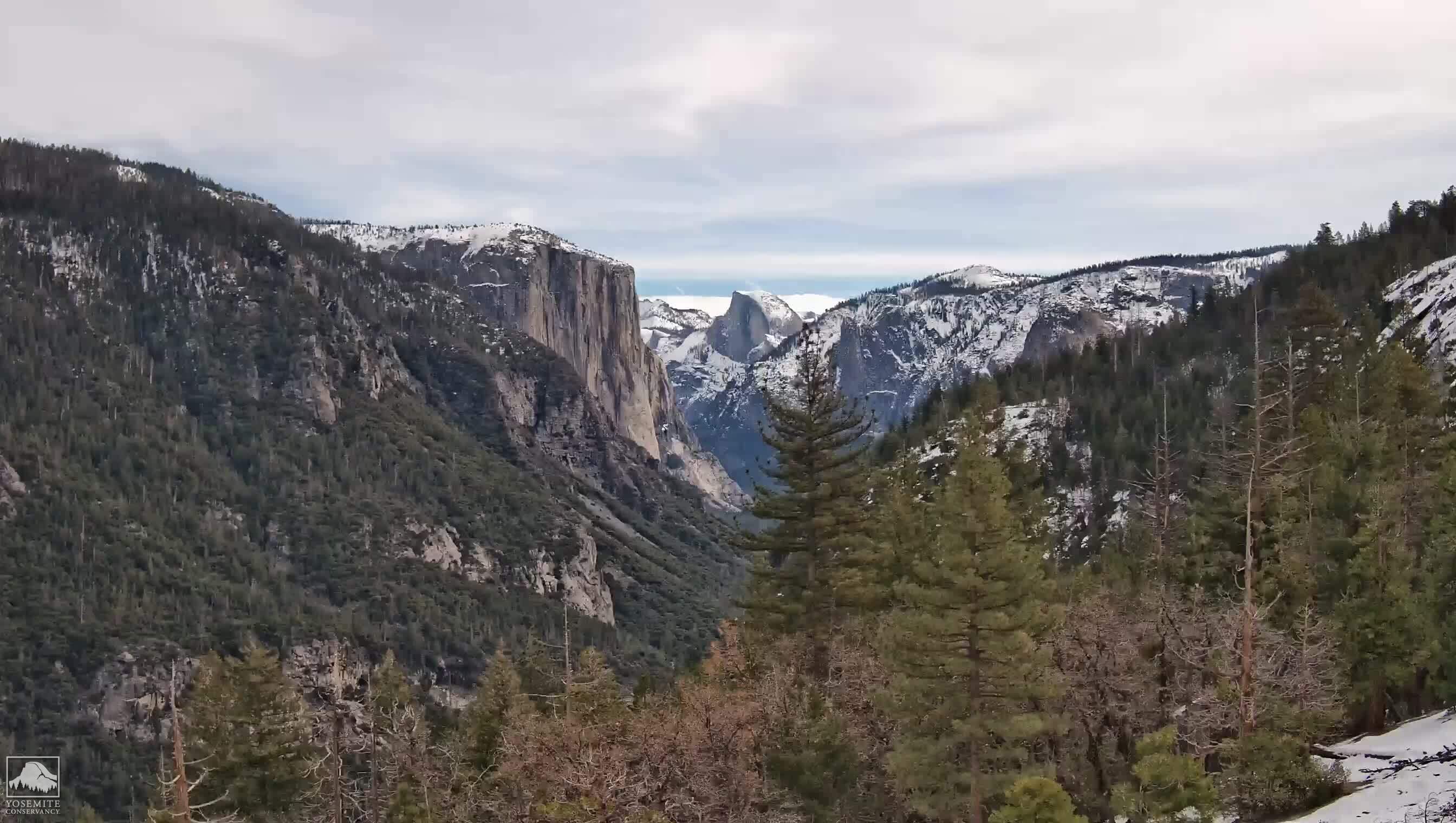
-
 2
2
-
 1
1
-
-
4 hours ago, Keith108 said:By kintsugi gold
The begging bowl is repaired
Now, where did it go?
Now, where did it go?
I can't say that I don't know
how to use my mind-
 1
1
-

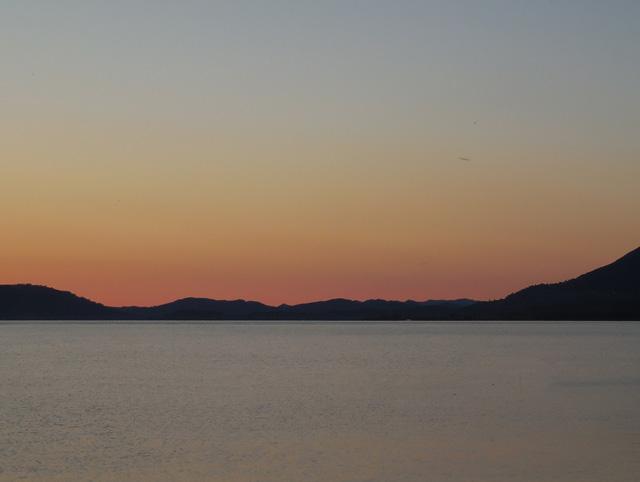
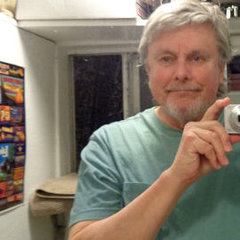
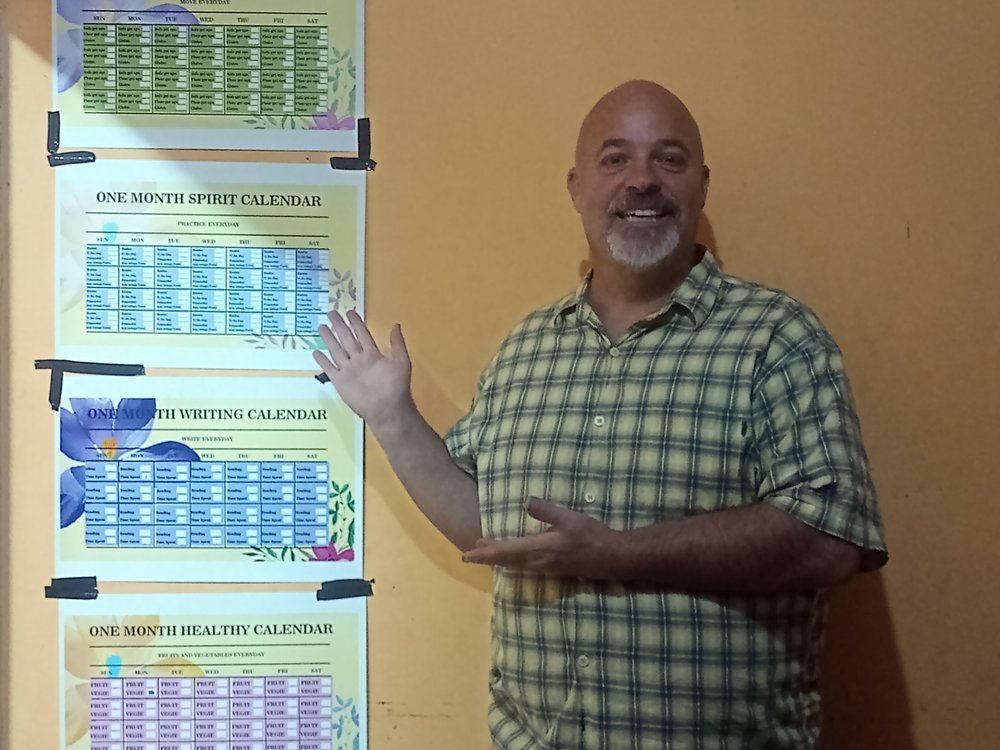
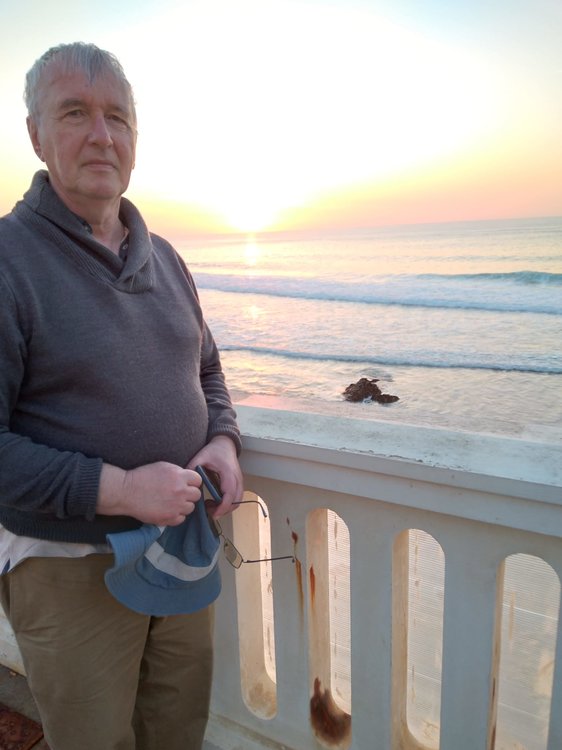
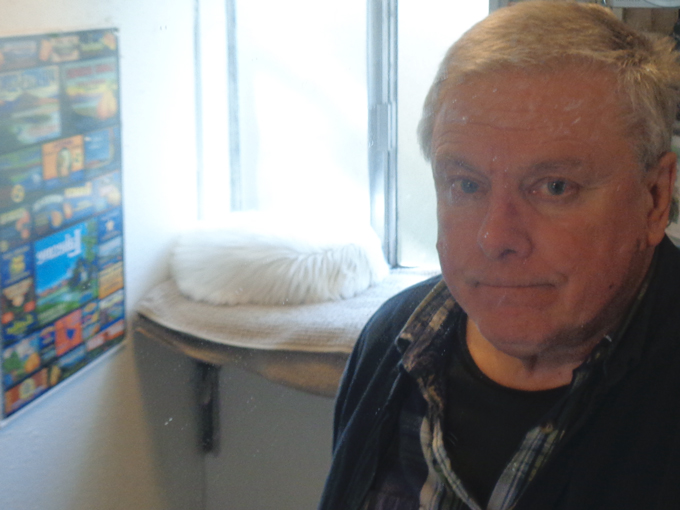
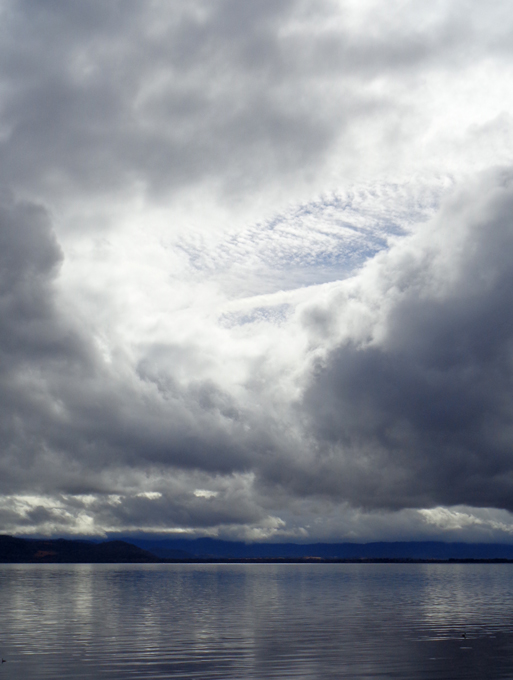

The shadow self
in General Discussion
Posted · Edited by Mark Foote
Shunryu Suzuki described the true practice of seated meditation as "just sitting", meaning that "doing something" in the act of sitting has ceased. What I find is that I have to constantly relearn the way my body and mind sit. I think that's because as the two coordinate to relinquish "doing" in sitting, I develop more feeling for my body and for my senses, and that changes the path to "just sitting" for the next time around.
I believe, as Gautama the Buddha said, that the cessation of "doing something" in speech, body, or mind is a contact of freedom.
I don't think the integration of childhood memories, pre-speech memories, and inured emotional responses can take place apart from that cessation of "doing something" in the body and mind and that contact of freedom.
I practice more now, as I see that thought directed to the cessation I experience in "just sitting" (if not the actual experience of cessation) helps to make a sense of timing in my life, a sense of timing that seems related to a whole beyond what I can know.
(apologies for the extensive editing after posting--what matters in the post is so much clearer after I hit "save"!